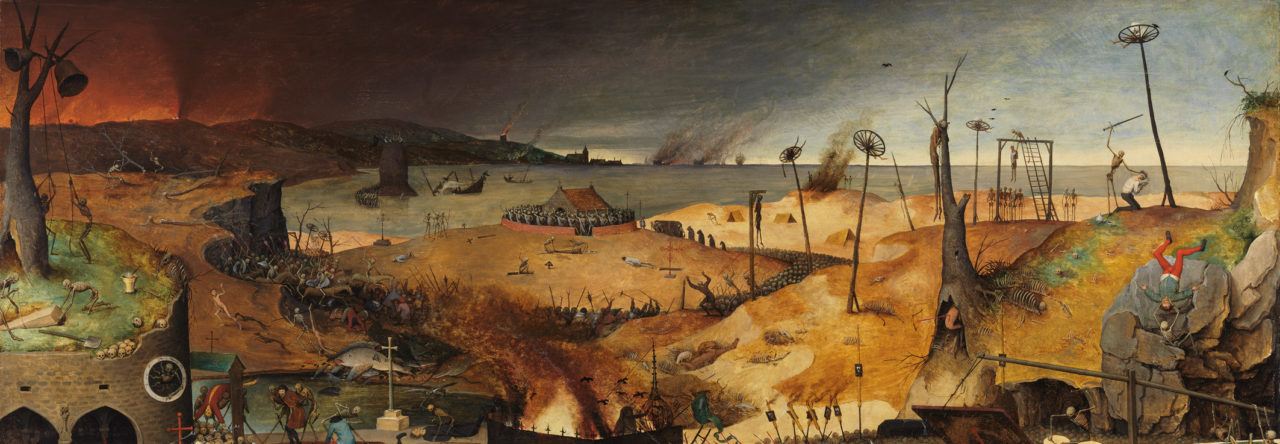The holiday of Passover, marked by Jews across the world on the evening of the first full moon following the spring equinox, celebrates the exodus of the ancient Hebrews from slavery to freedom.
The struggle of the Hebrews, led by Moses, to free themselves from the harsh labors imposed on them by Pharoah and the Egyptians, is retold in the ceremony known as a Seder. Towards the end of the Seder the crossing of the Red Sea is noted as the actual and symbolic crossing from slavery into freedom.
Many times the Hebrews called out to God to relieve their suffering, and many times God answered, ultimately bringing deliverance to the chosen people, and plagues and defeat to their adversaries. These plagues included turning the rivers to blood, turning day into night, and the killing of the first-born of the Egyptians.
Participants in the Seder are urged to feel as if they themselves had been delivered from bondage into freedom, individually as well as communally. Because you yourself were slaves, as the saying goes, in the land of Egypt.
But what is missing from the story is the many times God did not answer the Hebrews, the many times He essentially shrugged and said, well, you’ll just have to work this out on your own. Stories are often like this; details go missing, or get altered and misshappened through constant retelling. Often the storytellers change the tale to suit their purposes.
One detail left out of the standard ritual recounting is the existence of Hebrews who decided to remain in Egypt while their brethren escaped to freedom. Life for those who stayed behind, for various reasons, had not been so bad under the Egyptians.
These included the engineers and mechanics who labored over the technical details of the construction of the pyramids, as well as the professionals who organized the efforts of the slaves. People who by dint of skill and no small portion of luck managed to assure themselves some better fortune. Through a knowledge of the arts and sciences, several of them managed to devise a kind of pitch that greatly facilitated the construction of the pyramids. (The formula was handed down from the time of the Tower of Babel, or so they claimed).
They viewed the success of Moses with an understandable skepticism. Why should we follow this man, they reasoned among themselves, across a sea and over an uncrossable desert, to a land that may not even exist, promised (who knows?) by a god who only intermittently hears our cries?
We can speculate as to the motivation of this group who stayed behind. In any case, human nature being what is, even back in ancient times, we can imagine these Hebrews watching their counterparts cross the sea not without a twinge of regret.
Several generations passed and among these Hebrews who stayed behind in Egypt there arose a new generation who did not know Moses. A certain consciousness of unspoken traditions runs deep, and among this generation were young people who desired to rejoin their now distant relatives who had chosen freedom. After a series of trials no easier than those retold at Passover, they managed to cross the sea and desert and rejoin the tribes who had settled in what was now the promised land.
The Hebrews already in the promised land, however, were not at all pleased to see these young people, whom they saw as unwelcome reminders of the slavery they had endured. So a council of elders convened to decide their fate.
First they appealed to God, but God kept silent, almost as if to say: you’ll need to work this out on your own. Next, they proposed isolating the new arrivals in an empty part of the country for forty years. They argued that they had endured forty years in the desert, so for the newly arrived a corresponding period was necessary and appropriate.
But the young people cried out, and said that in forty years they would all be either too old or dead. So the council rethought its proposal, and decided instead to isolate the people for a symbolic forty days, after which the new arrivals could be welcomed. And so it was. And in the following years more descendants of those Hebrews who stayed behind arrived, and all were required to spend this now traditional forty day period in isolation and reflection.
One day a boy and a girl part-way through their time of isolation walked out into the nearby desert. They saw a bush burning, burning with a flame, but the flame did not consume the bush. The girl and the boy approached the burning bush, and intuitively they realized the divine presence inhabited the bush. They stepped back, removed their sandals waited for a voice to speak to them, to give them some message.
But the bush burned and burned, and gave no message. It was as if the divine presence had decided: you’ll need to work this out for yourselves. And so they watched the bush burn itself down to ashes, they watched the wind sweep the cold ashes away, and then they returned to the empty spaces to count out the remainder of their forty days.
Header image by Alexander Khodarev


























